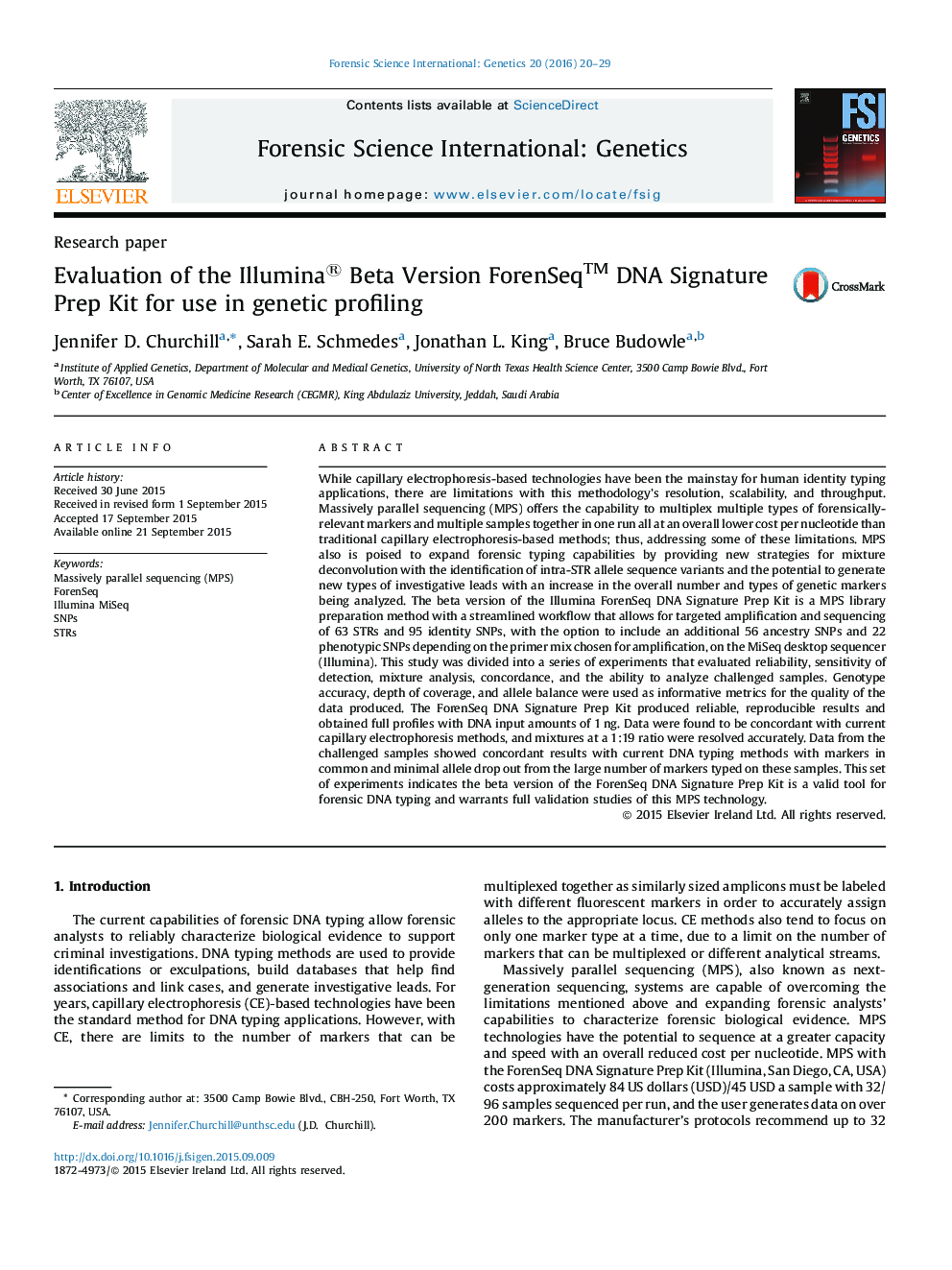| کد مقاله | کد نشریه | سال انتشار | مقاله انگلیسی | نسخه تمام متن |
|---|---|---|---|---|
| 98735 | 160887 | 2016 | 10 صفحه PDF | دانلود رایگان |
• The ForenSeq kit generated reliable, reproducible data concordant with CE data.
• Greater than 90% of markers typed at ≥100 pg of input DNA.
• Mixtures at a 1:19 ratio were resolved accurately.
• Results from challenged samples provided marked improvement over CE data.
• Results suggest a full validation of the FGx system is warranted.
While capillary electrophoresis-based technologies have been the mainstay for human identity typing applications, there are limitations with this methodology’s resolution, scalability, and throughput. Massively parallel sequencing (MPS) offers the capability to multiplex multiple types of forensically-relevant markers and multiple samples together in one run all at an overall lower cost per nucleotide than traditional capillary electrophoresis-based methods; thus, addressing some of these limitations. MPS also is poised to expand forensic typing capabilities by providing new strategies for mixture deconvolution with the identification of intra-STR allele sequence variants and the potential to generate new types of investigative leads with an increase in the overall number and types of genetic markers being analyzed. The beta version of the Illumina ForenSeq DNA Signature Prep Kit is a MPS library preparation method with a streamlined workflow that allows for targeted amplification and sequencing of 63 STRs and 95 identity SNPs, with the option to include an additional 56 ancestry SNPs and 22 phenotypic SNPs depending on the primer mix chosen for amplification, on the MiSeq desktop sequencer (Illumina). This study was divided into a series of experiments that evaluated reliability, sensitivity of detection, mixture analysis, concordance, and the ability to analyze challenged samples. Genotype accuracy, depth of coverage, and allele balance were used as informative metrics for the quality of the data produced. The ForenSeq DNA Signature Prep Kit produced reliable, reproducible results and obtained full profiles with DNA input amounts of 1 ng. Data were found to be concordant with current capillary electrophoresis methods, and mixtures at a 1:19 ratio were resolved accurately. Data from the challenged samples showed concordant results with current DNA typing methods with markers in common and minimal allele drop out from the large number of markers typed on these samples. This set of experiments indicates the beta version of the ForenSeq DNA Signature Prep Kit is a valid tool for forensic DNA typing and warrants full validation studies of this MPS technology.
Journal: Forensic Science International: Genetics - Volume 20, January 2016, Pages 20–29
